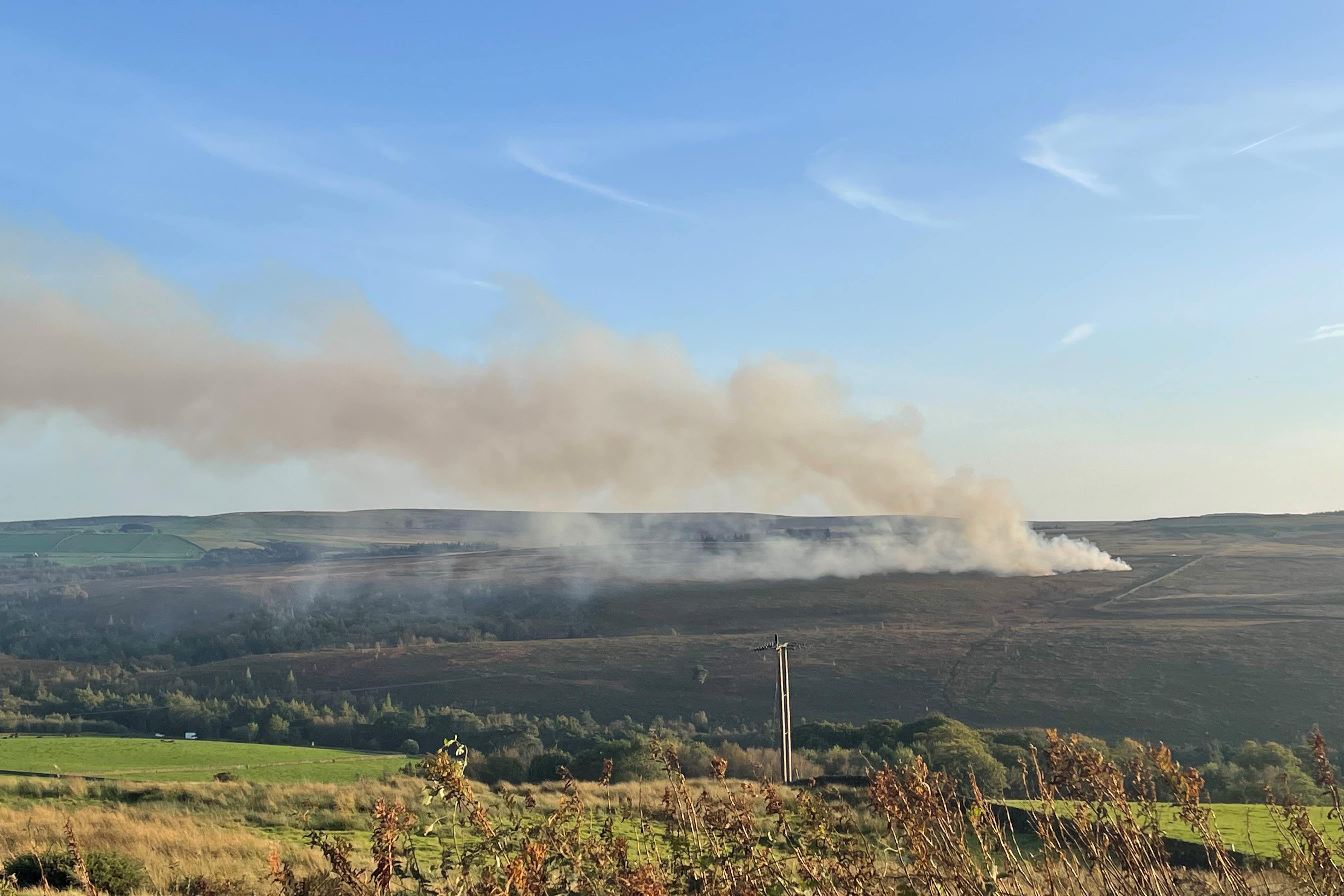Council calls on Government to ban moorland burning
Sheffield City Council says smoke drifting over the city from controlled burning on nearby grouse moors causes health problems.

A council leader has called for controlled moorland burning to be banned, saying it causes air pollution resulting in hospital admissions and A&E attendances.
Sheffield City Council leader Tom Hunt has written to Environment Secretary Steve Barclay following recent incidents which saw parts of the city blanketed in smoke from burning on the extensive moors to the west of the city.
Mr Hunt has asked Mr Barclay for legislation to be introduced that would outlaw the practice, saying it also destroys biodiversity of the uplands and can lead to an increase in flood risks.
He said: “The Government has mandated many cities, Sheffield included, to take significant action to improve air quality. We are taking this action.
“We all know that air pollution kills and that air pollution from fires has an immediate impact on hospital admissions and A&E attendances.
“We have had reports from people with asthma and breathing difficulties whose condition is made worse by moorland burning.
“We all know that the real impact of air pollution is in heart attacks and strokes, and increasingly lung cancer is linked to air pollution.
“The burning of heather, simply speaking, makes it harder for Sheffield to achieve its air quality improvement ambitions, its climate and net zero ambitions.”
Mr Hunt says the council has many complaints from residents every year over the burning, which takes place between October and April, but said it has only limited powers to intervene.
He said the council banned burning on the moorland it owns in 2016.
Mr Hunt said: “The moors surrounding Sheffield and across swathes of the Pennines are internationally important for their biodiversity and need protection.
The burning of heather, simply speaking, makes it harder for Sheffield to achieve its air quality improvement ambitions, its climate and net zero ambitions
“There is no argument for burning on grounds of biodiversity gain that is based on science.
“We cannot see any rationale for this activity. In 2020, the Committee on Climate Change, the independent statutory body established under the Climate Change Act 2008, called for an end to rotational burning.”
The Moorland Association, which represents grouse moor owners, says planned controlled burning has been carried out for generations and is one of the tools used to reduce the amount of vegetation growing on the moors that creates a fire risk.
It said the practice plays a key role in reducing the likelihood of wildfires, which pose a huge risk to biodiversity and contribute to climate change.
An association spokeswoman said on Wednesday: “In October smoke from controlled burns on moors close to Sheffield did regrettably cause an issue for local residents. Land managers make every effort to avoid such incidents.”
She said: “The 10-year scientific research project comparing different approaches to moorland management found that controlled burning has benefits for carbon capture, biodiversity and water storage, and may be the best option for managing vegetation, in appropriate areas.
“Controlled burning remains a vital tool to help reduce the spread of wildfires, which cause mass devastation to habitats and wildlife. In other parts of the world intense wildfires cause huge issues for urban populations, destroying property and often requiring mass evacuations.”
Bookmark popover
Removed from bookmarks